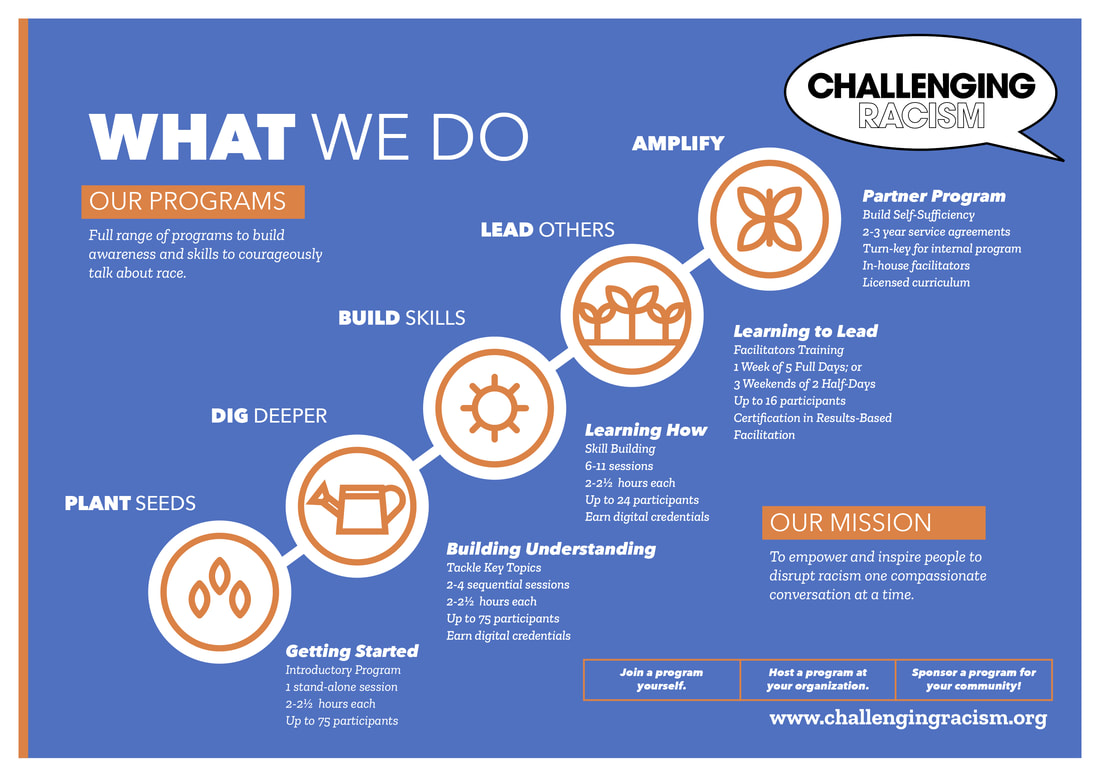Our Purpose
Challenging Racism is a 501(c)3 non-profit organization focused on educating people about the prevalence and inequities of institutional and systemic racism, giving them the knowledge and tools to disrupt racism where they encounter it -- in their family, work, and community.
Our racial equity workshops and trainings aim to: (1) build racial literacy, (2) provide historical context of systemic and institutional racism, (3) impart a better understanding of the roots and implications of racial inequities in our community, and (4) foster improved interpersonal racial awareness and skills.
Our professionally facilitated experiences move participants from a belief that racism is the work of bad individuals and individual acts to an understanding that racism is systemic. Moreover, it is a system of white advantage that all of us participate in whether we intend to or not, and we can work to eliminate their consequences by working for equity.
Our programs seek to raise collective consciousness on racial equity issues and provide competencies which will support the building of an organizational culture that operates with a more balanced view of history, interrogates personal bias, minimizes microaggressions, builds empathy and respect for others, and ignites a passion for anti-racists action.
Our racial equity workshops and trainings aim to: (1) build racial literacy, (2) provide historical context of systemic and institutional racism, (3) impart a better understanding of the roots and implications of racial inequities in our community, and (4) foster improved interpersonal racial awareness and skills.
Our professionally facilitated experiences move participants from a belief that racism is the work of bad individuals and individual acts to an understanding that racism is systemic. Moreover, it is a system of white advantage that all of us participate in whether we intend to or not, and we can work to eliminate their consequences by working for equity.
Our programs seek to raise collective consciousness on racial equity issues and provide competencies which will support the building of an organizational culture that operates with a more balanced view of history, interrogates personal bias, minimizes microaggressions, builds empathy and respect for others, and ignites a passion for anti-racists action.

